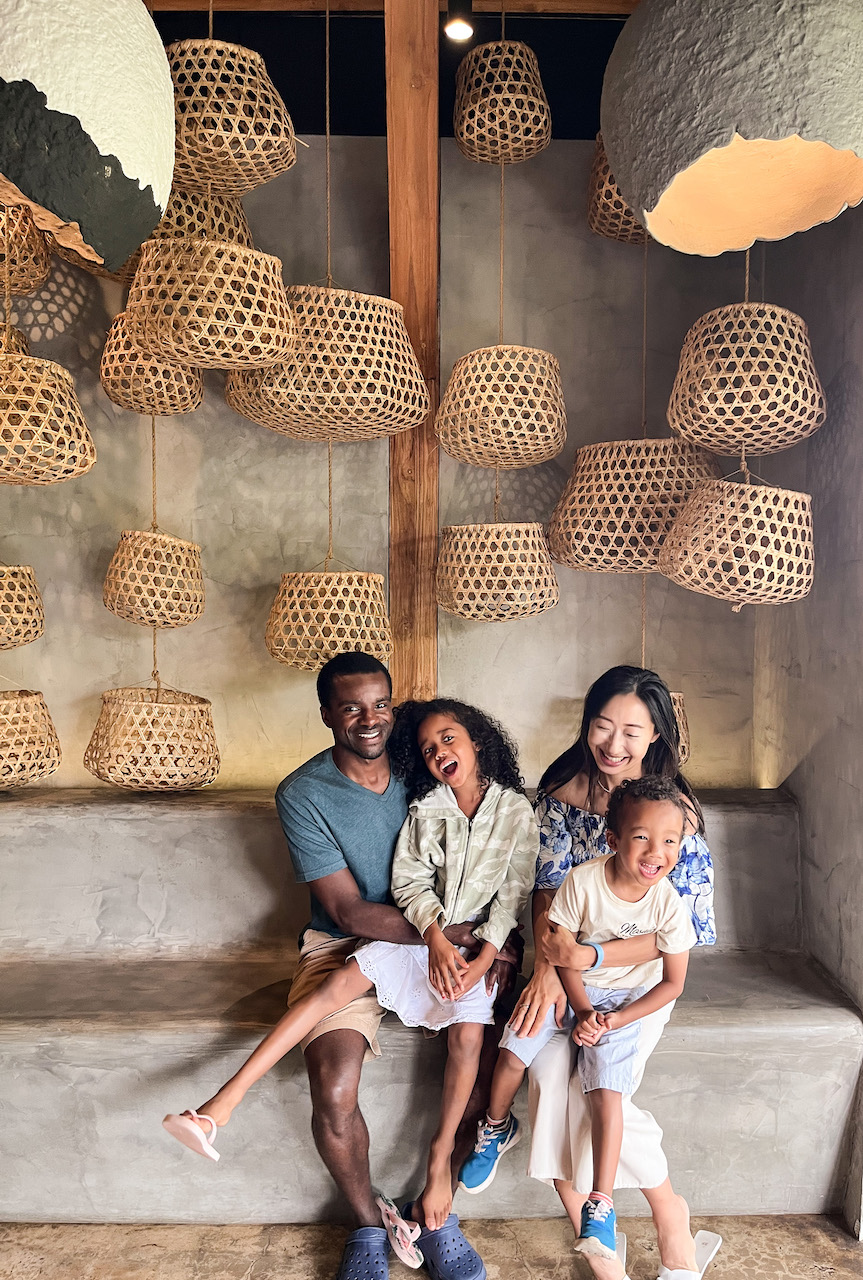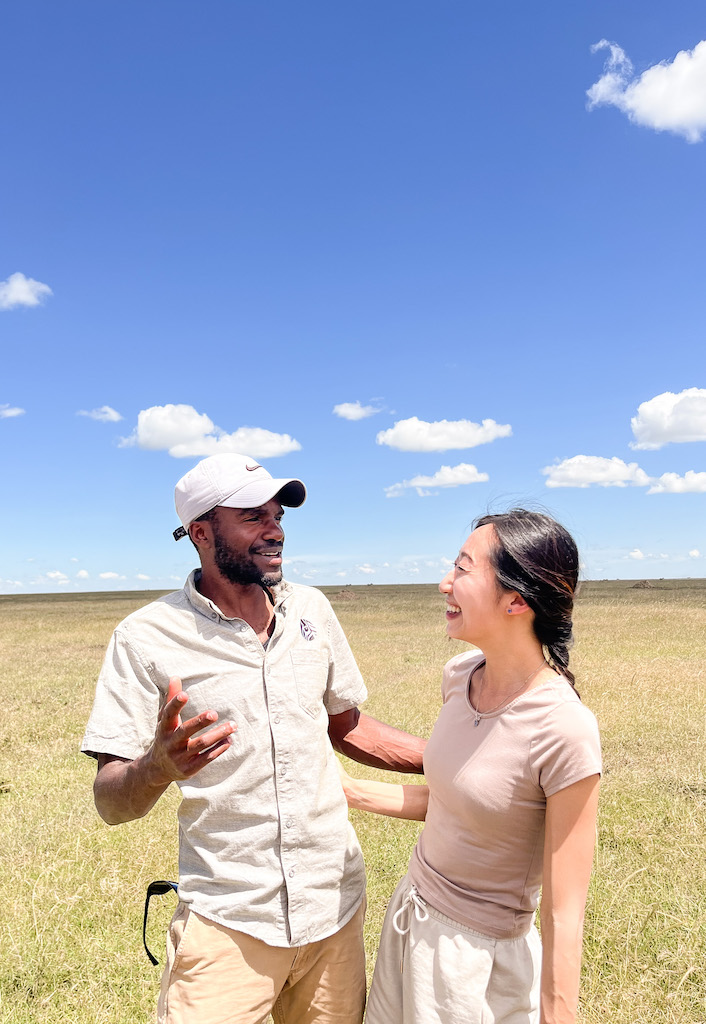
What makes an [interracial / intercultural] relationship work?
Ever since I have started to post actively on my Instagram account , I have been getting questions regarding how I (and sometimes both Sam and I) overcome challenges as an interracial couple. As some of you may now, our backgrounds could not be more different. I am originally from Taiwan, but grew up in Canada, whereas he was born and raised in Tanzania, East Africa. Before we met, I had this inexplicable optimistic outlook on love and marriage, partly due to the fact that my parents have a very solid and loving marriage. And so for me, I was expecting something very much akin to what they have – an unwavering love and commitment to one another, and that whatever life may throw my way, I believe I could take it. True love exists. It wasn’t even a question, it was a statement that I lived by.
And for a while, it really did seem like my version of love was really sticking. Despite the fact that we were thousands of miles apart, our long-distance relationship only seemed to have flourished, and in a way, cemented. I thought I had found “the one”. For those of you who haven’t yet found your life partner, or haven’t quite experienced marriage beyond its honeymoon stage – may share this belief – that there is someone out there that is perfect for you in every way. You just had to find them. Sure, it may feel that you’re searching for a needle in a haystack at times, but, if you work long enough and look carefully enough, you shall find it. Seek and ye shall find.
But, as I’ve come to realize, marriage is not a combination of two people perfect for each other, but two imperfect people coming together, trying desperately to make it work. This last word is key – marriage is hard ‘work’. Some of you may not agree with me, and I am no marriage counsellor, and that’s okay – I am simply sharing what I’ve learned after a decade of marriage. With that in mind, two people who are from similar background (e.g. if they grew up in a similar environment, city, country), can still be drastically different individuals. Human beings are complex, and the best example I can think of, is that even two kids from the same family, raised by the same parents, can grow up to be two very different people. So when you have two DIFFERENT people, from two DIFFERENT cultural backgrounds, half a world away, the challenges that they may have to face in their marriage kind of… multiplies. By a lot. We are not just talking about habits – such as, if one prefers to jog in the morning, or jog in the evening, but whether one would prefer to stop by his village and introduce you to every single person, including the village chief, who, apparently may have opinion on whether or not you would be a suitable wife. This was not my case, but an example, of which is perfectly normal in some cultures. Marriage is complicated. Interracial / Intercultural marriage is intricately complex and then some.
In my upcoming memoir, I write about how, at the beginning of my relationship with Sam, after chatting with a Muslim friend in Zanzibar, I had to frantically call him to make sure that he wasn’t expecting a polygamous marriage. Because, apparently, this is not all that uncommon in Tanzania. As someone who wasn’t familiar with their spouse’s culture in the beginning, I had a lot of new realities to navigate. But fools do rush in, and when you’re in love, well, you kind of do foolish things. I did not fully comprehend all the difficulties that would come later when I first married Sam and moved to Tanzania. For me, it was an easy choice. I simply packed up my things and flew across continents to be with the person who I believed to be “the one”.

And does love overcome all obstacles?
Just yesterday, someone asked me a question – have you ever been through rough patches in your marriage? And while it may not be obvious to some, the answer is “of course, yes!” We’ve had our share of disagreements, heated debate that turn into a full-fledge argument, and in some instances, we’ve had to seriously contemplate if we made the right decision. Marriage is hard work. But hard work also pays off. I believe that every time a conflict arises, it is a good sign. Because, it means that we care enough each other to make it work. If we were complacent, and indifferent to our “differences”, then that would be a clear sign that something was off. Love is not only an emotion, but a conscious choice we have to make every minute of every day.
So here are a list of things we had to ‘work’ on (and some we are still working on) as an Interracial/Intercultural couple, and I hope that these will be of assistance to some who are in similar situation:
- Always, always clarify: Sometimes, Sam might do or say something that I wasn’t sure if this was something that he grew up with, something inherent to his culture. A good example of this, is that Sam wasn’t familiar with the culture of ‘gifting’. He didn’t grow up in poverty, but his parents had to work hard to provide for the family. So birthdays, Christmas, or any sort of special occasion, the things he received as ‘presents’ were always things of necessities, like new uniform, or good quality, second-hand shoes. There was no time for his parents to go out of their way to select a gift from a shop and then to carefully wrap it up, and then given to him as a thoughtful gift. Things were hard, and his parents provided their children with basic needs. So when Sam didn’t think to get me a gift for our first anniversary, of course, my immediate reaction was disappointment. But he opened up to me more, I’ve come to realize that there was something more there. Something that was drastically different between North American culture and, East African culture (in general). Sometimes, the other person may not even realize, so it’s up to us to find out, and for the other to clarify, to explain, and for you to understand each other. After years of marriage, I’ve learned how making assumptions about one another could be detrimental to one’s marriage. Never assume, and always ask for clarification.
- Make reasonable concessions: In the beginning, Sam’s concept of time was baffling to me. “I’m on my way” typically means 5-15, 20 minutes, but in Tanzanian culture, this could mean anywhere between 30 minutes to a few hours, depending on how urgent the get-together was. This used to infuriate me to no ends. It took us years to figure out a way that would work for us both. He would still be late, but at least he could call ahead to let me know, approximately how much longer he would be, so I can make alternate plans while I wait for him to arrive. I’ve grown up with the concept, “time is money”, while Sam was more familiar with the famous “hakuna matata” motto. So, understand the conflict/problem, and then make reasonable concessions. Let your expectations be known, and see how they can come around to it. They don’t have to meet your exact expectations, but there needs to be some sort of effort made to make each other’s lives easier.
- Fight hard for what/who you love: On many occasions, I was asked just how “easy” it was for Sam to be accepted by my family, my parents, specifically. And I’ll be honest, it wasn’t easy. It was largely due to the fact that I planned to move to Africa, which was a lot further than my parents expected, and also they were concerned about the cultural differences. And these are all valid reasons. But we gave each other time to adjust to the idea of me moving away, and as I made it clear that I was not going to be with anyone else, they eventually came around. And I know that there are still many of you out there, struggling to make your parents and family understand your choice of marrying someone of a different culture, and I know how hard that could be, on both ends. But persistence does pay off.
- Love is a choice: There has been times in my marriage when I paused and wondered to myself – whether all of this is worth it. Behind every smiling, seemingly happy couple, there are always challenges that you won’t see from the outside. So when the storm rolls in, it is really then that you know that “love” is not a “feeling”, or a strong emotion that can sustain you, when you’re tossed back and forth by the tumultuous waves. Love is a choice – it is a conscious decision that you have to make – to swim on, and how to keep each other from drowning.
In conclusion, if I could sum it up in a sentence, it would be this:
[Interracial / Intercultural] relationship is hard, so fight hard for what/who you love.
I hope that this can be an encouraging read for you. Have a great week ahead, everyone!
Love hard and fight hard for what you love.




